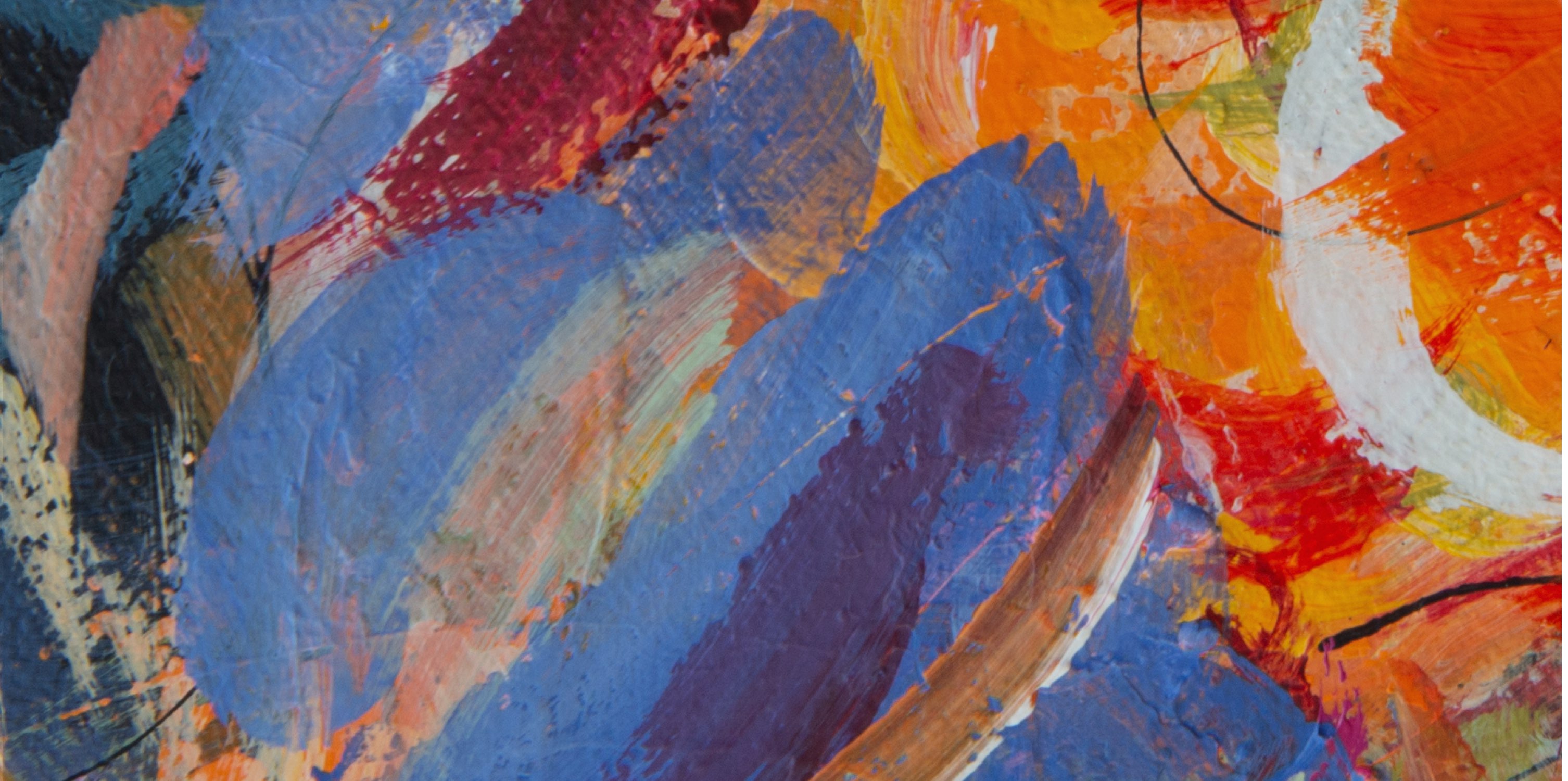Control the chaos and unleash your team's potential with Extensis Connect / Learn More
Control the chaos and unleash your team's potential with Extensis Connect / Learn More

Have you ever been told that you’re “lucky” for landing a certain role, client, or project? If so, you may have felt slightly offended or even amused, because you know exactly how much work went into securing that opportunity.
When we think about our own success, we tend to focus on all our hard work, but we may not always recognize when luck plays a role. In our minds, we remember working late nights and weekends, pushing ourselves to learn new skills, and relentlessly getting up after every fall just to go back to the drawing board.
On the other hand, when we see the achievements of others, we usually only see the tip of the iceberg. We witness the campaign launch, the shiny award, or the LinkedIn notification about their new role, but we don’t see all the steps that led up to that point. Since we can’t observe the process behind the results, it’s easy to label other peoples’ success as mere “luck.”
This common error in perception is due to the totally normal human nature of egocentric bias. Egocentric bias simply means that because we only experience the world from our own perspective, we view our contributions as being greater than they really are.
Egocentric bias can cloud our vision when we look at the creative work of others. It can create a false illusion of others’ successes stemming from luck rather than from effort, because we simply aren’t aware of the effort it took to gain that success. This can be frustrating, but it is also extremely problematic for the creative community as a whole. The creative industry is highly competitive, and it can often be subjective. And since it’s easy to compare yourself to others in competitive fields, the luck delusion can be demotivating for even the most diligent creatives. Giving into the luck delusion can open the door to resentment, unhappiness, and ultimately, burnout.
There’s also the possibility of losing your sense of connection to the greater creative community. This doesn’t sound that bad on the surface, but once you give into feeling separate from your community, your work loses its joy. Inspiration is harder to come by. Networking feels like a chore. And celebrating the success of others can feel like pageantry, rather than genuine support.
By shifting our perspective on luck and creativity, we can change the way we think about self-empowerment, appreciate the hard work of others, and feel more connected within the creative community. Let’s break it down.

Photo by Elcarito on Unsplash.
Our backgrounds can pre-determine how likely we are to pursue certain areas of study, get a foot in the door, and grow in our careers. While you can’t change circumstances beyond your control, you can absolutely take the reins on those factors that are within your control. From wrangling digital tools to schmoozing clients, there are many skills you can learn that will makes you better positioned for a successful creative career.
Someone with a strong work ethic and a hunger for improving their skills is often a better hire than someone with a poor work ethic and an impressive portfolio, and hiring managers know this. Is it possible someone with a bad work ethic and a flashy portfolio or high-profile internship in their back pocket will beat you to a job? Absolutely. It happens all the time. However, if that person doesn’t rise to the occasion, they won’t be able to succeed in that role.
Not everyone is willing to put in the time and effort to achieve great results, and this is what can potentially level the playing field. If you want to land that dream job or high-profile client, gain recognition for your skills, or achieve any of your goals, you’ll need to put in the work.
Some of that “hard work” is obvious. Learning how to use different applications and attention to detail are pretty straightforward, but there are a lot of soft skills that come into play, too.
Even if you don’t always hit the mark, perseverance ensures that you come closer than you would have otherwise. And remember, your career is a marathon, not a sprint. Even if the work you put in doesn’t “pay off” immediately, it will enrich your career over time.

Photo by Eugene Chrystiakov on Unsplash.
If we’re all just working as hard as possible, how do we catch breaks? Is it all up to chance?
We’d argue that you can make your own good luck. Instead of waiting for opportunities to fall in your lap, go after them. Work your angles, skillset, hustle and contacts to create opportunity internally at your current role, externally at different organizations, and independently — your own projects that empower you to steer your career’s path.
Apply for that job you want, even if you don’t have every single qualification. Speak up if you have a great idea for a new client or project. Introduce yourself to that art director whose work you love. Take on a project that you know will increase your visibility, even if it won’t necessarily increase your bank account. Submit that project you’re proud of to a website or magazine.
Putting yourself out there doesn’t always guarantee success, but it does make it more likely. Asides from a new title or award, there are very tangible benefits of pushing yourself beyond your comfort zone. You’ll build your network, become more comfortable presenting your ideas, and polish your portfolio to perfection. Perhaps even more importantly, you’ll become more comfortable and confident pushing yourself into unknown territory.
And, who knows, you might just land your dream job.
There’s no denying that many people’s success is not solely the result of hard work. We understand that creative industries might lack diversity and that luck will likely play a pivotal role in success. However, when you assume that these benefits totally outweigh individual effort, you’re doing yourself and the creative community a disservice.
Unless you work closely with your team day after day, it’s unlikely that you can have real insight into the level of work they’re putting in. Since you cannot say for certain how much work each person is doing, it’s important not to devalue their accomplishments by labeling them as mere “luck.”
So many factors play a role into whether or not opportunities present themselves, and whether or not individuals actually have the bandwidth to pursue those opportunities. It’s important to give the benefit of the doubt to everyone, including those who haven’t caught a break yet.
Don’t assume that anyone is inherently less talented or dedicated than you are. Keep an open mind and treat your fellow creatives with respect and compassion. As we mentioned earlier, you have the power to create your own luck. And by extension, you have the ability to improve the luck of other creatives.
The desire to write off another person’s success often stems from comparison. In the age of social media, it’s nearly impossible to block out news in our social networks that can trigger feelings of insecurity or envy. The good news is that you have the power to change your perspective and push yourself to become more positive, inquisitive, and supportive.
Let’s say that you hear one of your former classmates had their work featured in a magazine. Your first instinct might be to compare their accomplishments to your own. You might brush off the article as them being lucky, or even start to think about how they’ve always been “so lucky.” And what that thought really boils down to, is that you’ve decided that they are luckier than you are, and that’s why they’re more successful. But there’s a lesson to be learned here.
Try to redirect your energy from comparison to curiosity. How did they execute that project? What made it appealing, striking, or shareable? How are they presenting their work? What might have gone into coordinating the article with the magazine?
Those negative feelings that bubble up are also learning opportunities. You can learn more about the industry, creative trends, networking — or about yourself.
By pushing yourself to ask questions, you wind up looking more deeply at their work. You can recognize the inspiration behind it and the effort that went into it. You may begin to feel those unpleasant emotions of apathy, envy, or resentment subside, and be replaced by happiness for your former classmate. Appreciating and celebrating others’ accomplishments is the foundation of a supportive, thriving creative community.

Photo by Pascal Bernardon on Unsplash.
We know you work hard. However, if you look back, you’re bound to identify at least a few times that you got lucky. Really lucky.
Maybe someone left that small agency where you were interning and opened the door to your first paid gig. Maybe you made such a great impression on a single high-paying client that you were able to launch and build your own freelance business. Maybe inspiration blessed you and you were able to whip up something totally unique and unexpected for a campaign.
You worked hard, but you were also lucky enough to be given the opportunity to prove yourself. By practicing gratitude, you’ll recognize and appreciate your own good luck. This can lead to greater career satisfaction and overall happiness.
Opportunities come and go, but changing your outlook can guarantee a lifetime of inspiration and drive. Remember that ultimately, you shape your own creative destiny. Whatever your dreams are, we wish you the best of luck!
Don’t let funny font problems slow you down on your road to success. Font management can be a designer’s best friend.